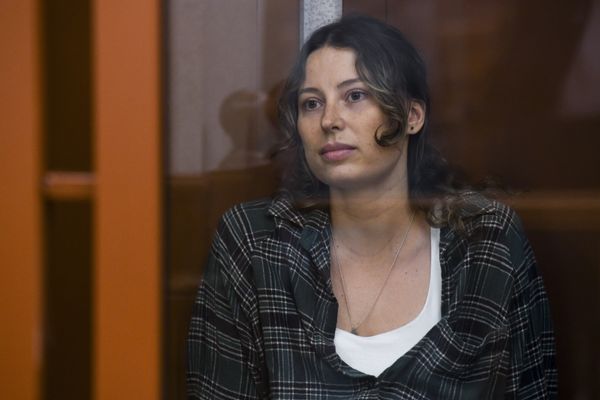
Located near the Syrian-Iraqi border and east of Syria’s Al-Hasakah governorate, Al-Hol is the largest camp for displaced people who fled after Kurdish-led forces backed by a US-led coalition dislodged ISIS fighters from their last scrap of territory in Syria in 2019.
Al-Hol is overpopulated with thousands of residents, including relatives of suspected terrorists currently held in prisons run by the Syrian Democratic Forces (SDF), displaced Syrians, and Iraqi refugees.
This camp, which also hosts foreigners from 54 Arab and Western nationals, has turned into a hotbed for crime.
Al-Hol has witnessed hundreds of slayings and has become notorious for high levels of violence and the spread of extremism among its residents.
“Taking the camp apart needs years,” Jinan Hanan, Co-Chair of Al-Hol’s administration, told Asharq Al-Awsat.
According to Hanan, around 51,500 residents are currently living at Al-Hol. They include approximately 26,000 Iraqi refugees and 18,000 displaced Syrians.
Hanan also revealed that over 7,700 residents currently occupy the section for foreign females at Al-Hol.
Confirming that Al-Hol has become the “most dangerous camp in the world,” Hanan said that over 150 killings had occurred there over four years.
“Last year alone, 36 murders took place, apart from torture, assault, escape, and constant threats.”
Hanan added that maintaining security at Al-Hol is a thorny and complex issue due to the camp’s extensive size spanning over three square kilometers.
“The role of security forces is limited to protecting and monitoring the entrances and exits of the camp and its main gates,” said Hanan, adding that they also “conduct mobile patrols inside Al-Hol.”
The administrator, however, noted that the camp does not have fixed security centers.
Hanan also said that Al-Hol’s administration is working to secure the camp’s residents with humble means.
“We do not have advanced modern equipment, and we do not have the capabilities to increase the number of security personnel,” she said.
“Despite the security campaigns, the camp continues to witness security incidents and frequent breaches,” she added.
Hanan revealed that there is high-level coordination between the Autonomous Administration of North and East Syria (AANES) and the Iraqi government to send back refugees in Syrian camps under the supervision of the United Nations High Commissioner for Refugees.
She also shed light on many Western and Arab governments not yet taking the initiative to inquire about the fate of their nationals and citizens at Al-Hol.
“There are European and Western countries that are dodging the return of all their citizens residing in the camp,” said Hanan.
Hanan emphasized that getting rid of Al-Hol requires years, strict international decisions, and vigorous efforts to convince the governments of countries with nationals living in the camp of needing to take them back.
“In my opinion, we need five or six years to dismantle the Al-Hol camp completely,” she said.







